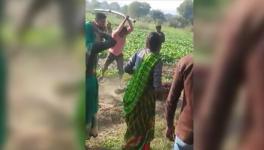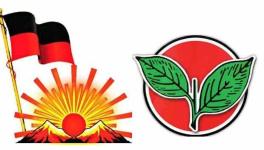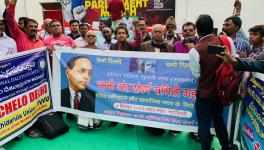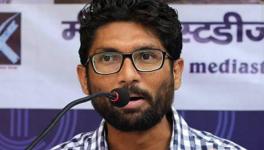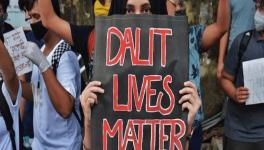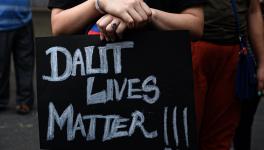TN Elections: ‘Welfare Schemes are Inaccessible’ Reads Dalit, Adivasi Election Manifesto
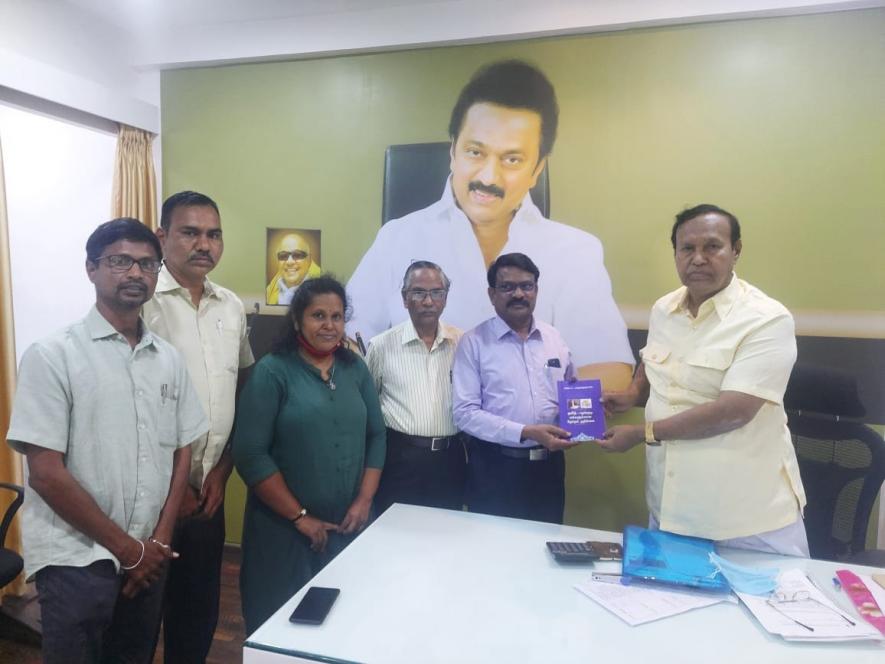
NDMJ activists submitting the manifesto to T R Baalu of DMK
Chennai: The ‘Election Manifesto of Dalits and Adivasis' was released on February 25 by the National Dalit Movement for Justice (NDMJ) along with its state wing, Dalit Collective for Justice, ahead of the Tamil Nadu Assembly elections next month.
The campaign group, which aims at increasing the visibility of dalit issues and making the State accountable for human rights violations of dalits, submitted the manifesto to state political parties and urged the incorporation of the points into their party manifestos for the upcoming assembly elections.
The manifesto is an outcome of consultations between certain dalit and adivasi collectives which felt a need for such a document, and formed a committee to finalise the manifesto prior to submitting it to political parties.
The manifesto demands the repeal of certain government policies and moves such as NEET for medical education, National Education Policy, Citizenship Amendment Act, the three recent farm laws and the Environmental Impact Assessment notification.
SUBMISSION TO PARTIES
The manifesto was submitted to Member of Parliament and treasurer of Dravida Munnetra Kazhagam (DMK) T R Baalu; Member of Parliament and President of Viduthalai Chiruthaigal Katchi (VCK) Thol. Thirumavalavan; state President of Communist Party of India (CPI) R Mutharasan; state secretary K Balakrishnan and secretariat member G Ramakrishnan of Communist Party of India (Marxist); members of the manifesto drafting committee of Makkal Neethi Maiam (MNM), and environment activist and Aam Aadmi Party (AAP) member Udayakumar.
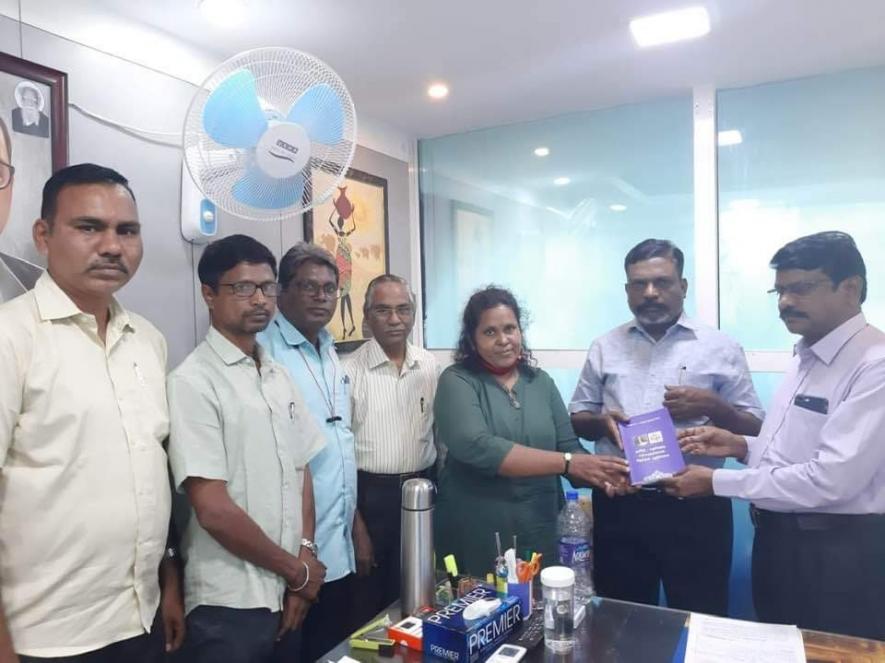
NDMJ activists submitted the manifesto to Thol. Thirumavalavan of DMK
Of the political parties mentioned above, VCK, DMK, CPI and CPI(M) are part of the same alliance, and the AAP is in alliance talks with Kamal Haasan’s MNM.
V A Rameshnathan, general secretary of NDMJ told Newsclick they were not able to submit the manifesto to the ruling All India Anna Dravida Munnetra Kazhagam (AIADMK) because “members of the party were not available on the day we went to submit the manifesto”. He added: “Other than AIADMK we have submitted to all other parties”. However, AIADMK alliance parties Bharatiya Janata Party (BJP) and Pattali Makkal Katchi (PMK) were not mentioned.
Upon stating that “almost all the parties said they would consider the demands mentioned in the manifesto”, Rameshnathan said a detailed discussion was held with T R Baalu, the head of the manifesto drafting committee of DMK. He said that Baalu additionally proposed the submission of a model draft for Special Component Plan (SCP) and Tribal Sub-Plan (TSP), which is already implemented in few other states. Following which, a model draft of SCP and TSP was prepared by the NDMJ based on the Andhra Pradesh and Telangana model.
Rameshnathan said Thirumavalavan went through the manifesto point by point, a detailed discussion followed it and he proposed to continue the discussion on a later date. However, given that the poll schedules are announced “we decided that after the government is formed, we can prepare an agenda of the manifesto and push for their implementation of demands” said the general secretary of NDMJ.
NEED FOR THE MANIFESTO
Stating the need for releasing such a document, the manifesto read “In an attempt to get people's support, almost all the political parties in the country are releasing their election manifesto with various promises and demands. For dalits and adivasi people, the rights and various welfare schemes that are enshrined by the Indian Constitution and various laws enacted in alignment with the Constitution neither reclaimed their right to life nor fulfilled their social and economic needs fully.”
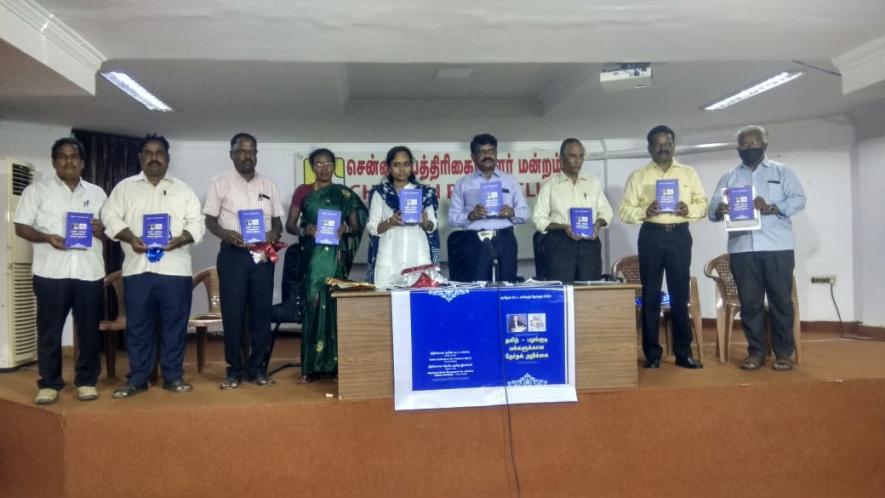
The document added “due to the rampant corruption in the country, the welfare schemes are inaccessible to Dalits & Adivasi people”. It further read “even though we claim to be a civilized society, the Dalits and Adivasis are forced to dispose of human excreta and to clean the sewages”. Notably, Tamil Nadu is on the top of manual scavenging deaths in the country.
The manifesto is being released at a time when the COVID-19 lockdown created great distress to the downtrodden communities. A study conducted by the Tamil Nadu Untouchability Eradication Front (TNUEF), during the peak pandemic lockdown period, revealed increased cases of caste atrocities against dalits and tribals in Tamil Nadu.
DEMANDS IN THE MANIFESTO
Cases that get registered with the Scheduled Castes and Scheduled Tribes (Prevention of Atrocities) Act, 1989, across Tamil Nadu witness a high percentage of acquittals, which is 94% as of 2017. Experts point to a lack of commitment on the part of law enforcing agencies in dealing with such cases and the inadequate representation of dalits in the judiciary.
In this context, NDMJ has demanded robust implementation of the SCs and STs (PoA) Act 1989. The manifesto read “Special Schemes, Programs should be framed to increase the participation of Dalit & Adivasi Women in various sectors including police, judiciary & legislatures.”
The manifesto points out the need for justice to dalit and adivasi people who are subjected to police torture and custodial deaths. Perception towards Kuravar and Irular tribal community people as habitual offenders must be changed mentions the document.
Some of the other demands include reservations in private sector jobs, improved health & sanitation facilities and restoring Panchami lands.
The document particularly demands land entitlements, housing pattas, community certificates, housing schemes for dalits and adivasis.
Get the latest reports & analysis with people's perspective on Protests, movements & deep analytical videos, discussions of the current affairs in your Telegram app. Subscribe to NewsClick's Telegram channel & get Real-Time updates on stories, as they get published on our website.









